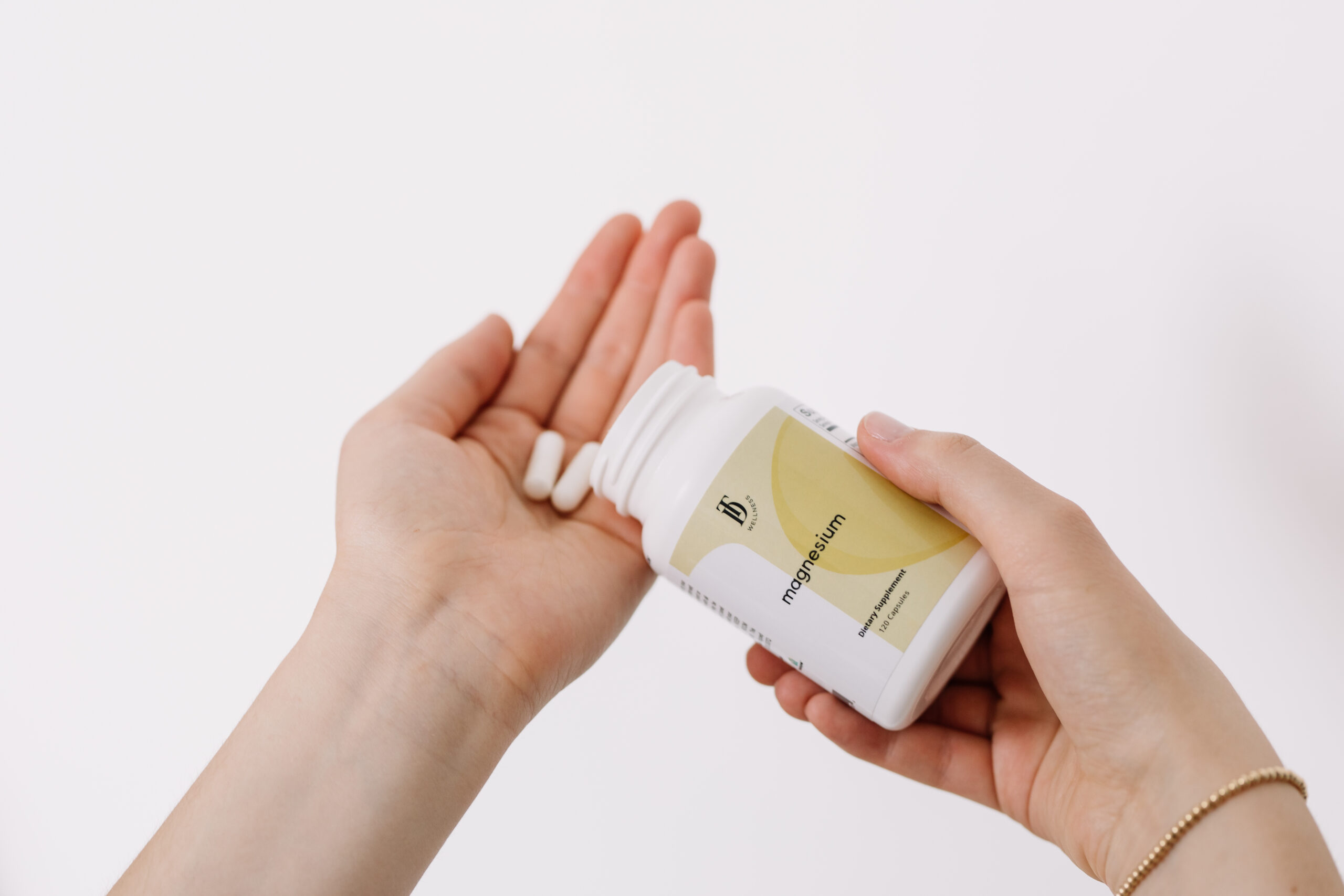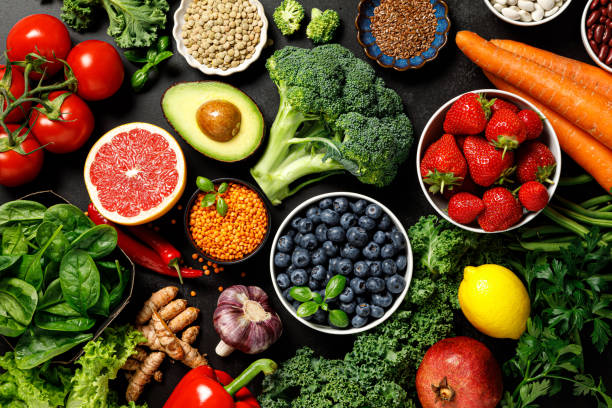Gut Health and Acid Reflux: 4 Tips for Natural Digestion Support

When that burning sensation hits your chest after a big meal you most likely reach for the antacids. The general consensus is that your acid reflux, heartburn, and GERD are due to too much stomach acid. What if I told you that the brightly-colored, candy-like chewable medicine actually exacerbates the problem rather than solves it?
That’s right, acid-blocking medications make the problem worse. In fact, the real problem is that you likely have low stomach acid.
These medications carry serious risks, too. Medicine like proton pump inhibitors that are commonly prescribed for GERD suppresses stomach acid production. This can wreak havoc on your health.
This article will discuss gut health and acid reflux symptoms and risk factors for chronic heartburn, why low stomach acid is a problem, how to wean yourself off acid-blocking medications and tips for natural digestion support for better overall health. Let’s jump right in!
What is GERD?
GERD stands for gastroesophageal reflux disease and is caused by frequent acid reflux.
Normally, when you swallow the muscles around your esophagus relax to allow food and liquid into your stomach. Afterward, what is called the sphincter closes behind whatever you consumed. If that muscle weakens or relaxes abnormally, excess stomach acid can flow back into your esophagus causing acid reflux and that burning sensation.
GERD is officially diagnosed if you experience mild acid reflux at least twice a week or moderate acid reflux once a week.
Symptoms of GERD
Of course, we are all familiar with the burning sensation associated with acid reflux. However, there are other symptoms of GERD not normally associated with heartburn. Those include:
- Chest pain
- Difficulty swallowing
- Regurgitation of food or sour liquid
- The sensation of a lump in your throat
- Chronic cough
- Laryngitis
- Disrupted sleep
Who Is at Risk for GERD?
It’s not unusual to experience acid reflux throughout your life. We’ve all been there during post-Thanksgiving dinner. However, it is not normal to experience chronic acid reflux. Most times, there is poor gut health and acid reflux connection. Here are a few of the risk factors for developing GERD:
- Obesity
- Eating a standard American diet (highly refined, processed foods)
- Eating late at night
- Smoking
- Drinking certain beverages like coffee or alcohol
- Certain medications like Aspirin or Motrin
- Low stomach acid (Hypochlorhydria)
- Hormonal imbalances
- Pregnancy
Why Is Low Stomach Acid a Problem?
The root cause of acid reflux is not an excess of stomach acid, it’s a muscle that fails to function properly. Unfortunately, while acid-blocking medications will give you temporary relief, they won’t heal the cause of your pain. Instead, they reduce the amount of stomach acid in your belly, which leaves undigested food sitting there. This undigested food exacerbates the problem and leads to acid reflux.
You need the proper amount of stomach acid to digest your food and absorb nutrients. Stomach acid plays an important role in proper digestion, helping you break down food and killing off bad bacteria, yeast, and parasites. Adequate absorption of iron, calcium, zinc, copper, folic acid, vitamin B12, and other B vitamins requires the presence of stomach acid.
When stomach acid is low, it can leave undigested food particles, slowing down digestion. This causes a buildup of gas and pain, mimicking signs and symptoms of GERD such as indigestion, burping, bloating, and stomach pain (or burning after eating).
Causes of Low Stomach Acid
Contrary to what you may think, low stomach acid is not the same thing as GERD. There are a lot of different reasons you may develop low stomach acid, here are a few of them:
- Age (stomach acid levels decrease with age)
- Long-term use of antacids or proton pump inhibitors
- Zinc deficiency
- Vitamin B deficiency
- Magnesium deficiency
- H. pylori infections
- Chronic stress
Conditions Associated with Low Stomach Acid
Since low stomach acid disrupts digestion and absorption of nutrients, there are a variety of other conditions associated with low stomach acid.
Moreover, stomach acid is your first line of defense against harmful pathogens, making it less likely that they will take hold further along the digestive tract, making you sick. These pathogens could also cause an imbalance in your gut microbiome, causing issues such as small intestine bacterial overgrowth.
Here are just a few other conditions associated with low stomach acid:
- Autoimmune conditions
- Osteoporosis
- Rosacea
- Chronic allergies
- Chronic childhood eczema
- Eczema in adults
- Chronic hives
- Type 2 diabetes
- Heart disease
4 Tips for Natural Digestion Support
With all that in mind, how can you support digestion without resorting to acid-blocking medications? Get to the root cause to improve gut health and acid reflux whether you have GERD and/or low stomach acid.
1. Weaning Off Stomach-acid Medications
Do speak with your provider before getting off any medication, but to wean off of Omeprazole, Prilosec, Nexium, Protonix or other Proton-pump inhibitors, you want to do this slowly over a month – like ¾ capsule or tablet, then ½ capsule or tablet. Your body can actually make more stomach acid receptors when we dry up the stomach acid with a product like Omeprazole, so you can have worse burning, indigestion, and reflux if you stop the medication too quickly.
This is what I would recommend in general supplement wise:
- Take 2 TDW Digest capsules with each meal. This will actually help you digest food as reflux is actually a sign we don’t have enough acid. The food isn’t being broken down and is sitting in your stomach then coming back up the esophagus.
- Take 1 scoop of TDW Gut Support twice daily before a meal. This will help with soothing inflammation in the GI tract.
You’ll want to continue these supplements for one month after weaning off stomach-acid medication.
2. Supplement Smarter
Digestive Enzymes
Some individuals have low digestive enzymes due to leaky gut, inflammation, chronic stress and toxins. A high-quality blend of digestive enzymes can help break down food proteins, and reduce bloating and dysbiosis.
HCL
Betaine is a nutritional compound from food sources like grains or beets. Betaine HCl is an acidic version of betaine that works in the same way as hydrochloric acid (HCl) in your stomach. You can consider taking an HCL supplement if low stomach acid is the issue. But if you don’t know whether your stomach acid is low, you can still try this supplement to find out.
Take one capsule of HCL with water before a meal and note how you feel afterward. If you experience a burning sensation, low stomach acid isn’t the issue and HCl isn’t needed. However, if you feel nothing, you probably need to add an HCL supplement to counteract your low stomach acid.
Ox Bile
Ox bile is a bile extract that can be supplemented with your diet to support healthy digestion. Bile is critical for digesting and absorbing the fat in your foods and also for digesting and absorbing fat-soluble vitamins like vitamin D, vitamin A, vitamin E, and vitamin K.
All three of these – digestive enzymes, HCL and ox bile – are in this supplement I would recommend to my private practice patients.
3. Fermented Foods
Foods like sauerkraut, kimchi, pickles, pickled ginger, and water kefir contain organic acids, enzymes, and probiotics to assist with proper digestion.
4. Eating Hygiene
Proper eating hygiene can go a long way in supporting digestion. This can help your stomach produce more acid at mealtime.
Before a meal:
- Stimulate your vagus nerve, which will increase your parasympathetic nervous system. Do this by humming, gargling, singing loudly and breathing.
- Make sure you’re eating in a relaxed state and trigger digestive juices. Take a few deep breaths before a meal, pray over your food or smell it.
- Take a tbsp. of apple cider vinegar or a squeeze of fresh lemon in some water to activate your digestive juices as well.
During a meal:
- Chew your food thoroughly.
- Limit liquid intake during meals.
- Eat protein foods at the beginning of a meal.
All the time:
- Stay hydrated throughout the day. I try to drink 100 oz. of filtered water every day.
Test, Don’t Guess
If you try the four steps above and still experience acid reflux symptoms, stop guessing and get testing! Stool tests can be invaluable for uncovering what might be at the root of your reflux problems. Stool tests will indicate whether you have overgrowth of pathogens (such as yeast, bacteria, parasites, H Pylori, etc.), if your digestion is not optimal, if immune function in the gut is weak, or many other factors.
By joining the TDW Community, you can get access to the best stool testing that functional medicine has to offer along with so many other types of functional medicine tests/panels/labs as well.
Stay Updated on All Things Wellness
At Taylor Dukes Wellness, we are always working on new ways to serve you on your health journey. Be the first to learn about new healthy living resources, blog posts, and TDW offerings, by getting on my insider list here.
Share This Post:
Your Wellness Deep Dive
- Be the first to learn about new healthy living resources, blog posts, and exclusive TDW offerings by getting on my insider list.
- Find healthy living products with ingredients you can trust – the same ones I personally use for myself and my family – in the TDW Shop. Check out our protein powders, electrolytes, supplements, and more!
- Get personalized support through the TDW Community. When you become a member, you get access to functional medicine expertise from me and my team, functional medicine lab testing and 1:1 consults, a digital library of exclusive wellness content, live monthly Q&As with me, and so much more!
YOU MAY ALSO LIKE:
Helping you get your gut right, improve energy, boost immunity, balance hormones, sleep better and look + feel your best
DISCLAIMER
PRIVACY POLICY
TERMS + CONDITIONS
ACCESSIBILITY
© 2025 Taylor Dukes Wellness
LEARN
SHOP
ABOUT
TDW Community
Free Guides
Blog
TDW Store
Fullscript
About Taylor
Press
Contact
COOKIE POLICY
SITE CREDIT
Trusted Products



